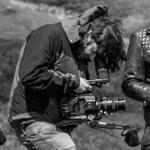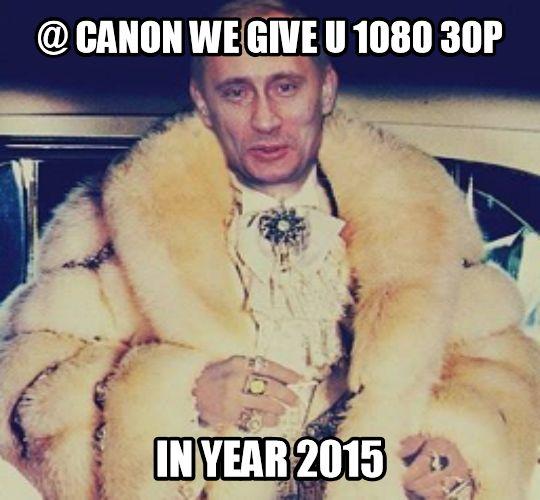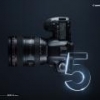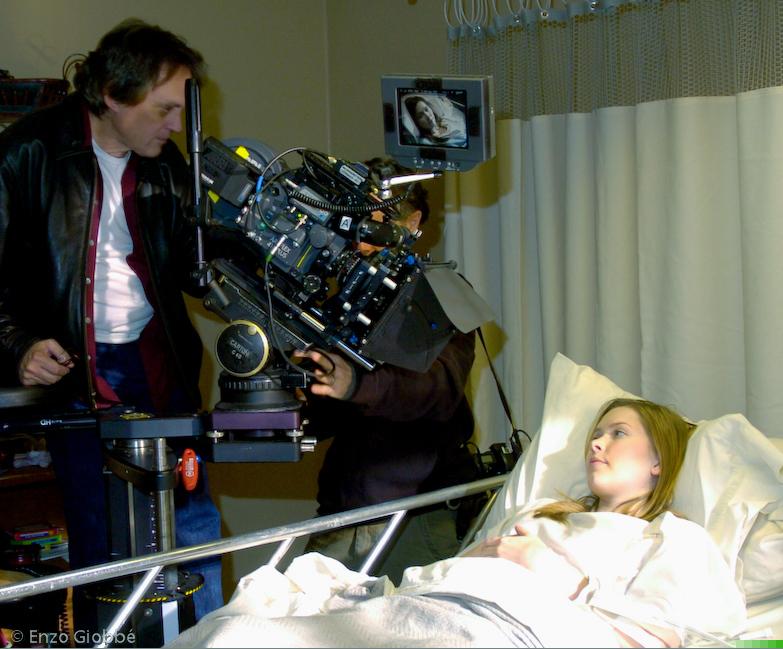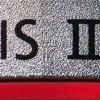Leaderboard
Popular Content
Showing content with the highest reputation on 02/07/2015 in all areas
-
Canon will announce 56,312 cameras at NAB. 3 of them will shoot 4k. 2 will have higher frame rates. 1 of them will be affordable. On the other stand, Blackmagic will steal all the thunder again. They release the "URSA Pocket" that can actually transform into a full-size URSA if you stick it at the front of one with a HDMi connection. It also has mini wheels as a pointless gimmick.2 points
-
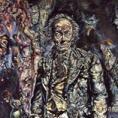
Kodak celluloid film saved by studios - oh and by the way - what's the point?
agolex and one other reacted to William Malone for a topic
Andrew, I just couldn't let this post go. I guess I would fall into the category of the "privileged few" having been a "film" director for over 35 years and having shot film almost exclusively. Let me start by saying while I do have a certain sense of nostalgia for film, I'm not someone who doesn't enjoy and in fact embrace new technology. I've been happily shooting "video" for the last 5 years with a ML equipped Canon 5D Mark 2. I have been waiting for the "perfect digital cinema camera" to come along before I upgrade. That has yet to happen. Because I'm an old guy, perhaps I may have a different prospective on this issue. The fall of film (in my demented perspective) is not that digital is better.. but because its cheaper. The seeds of the fall of film I think began in the early 80s. When I made my first film, I shot it in 16mm. At the time, a 400' roll of film (about 10 minutes running time) cost $34.00. Because of the Hunt Brothers trying to corner the Silver market, within a few weeks, the price of Silver went through the roof. Kodak raised the price to $76.00, which of course also included raising the price of print stocks. After a few more weeks, the price of Silver collapsed. Kodak never adjusted the price back down. Since then the prices of film and processing continued to rise until film and lab work fell out of reach of all but high end users. This left a huge hole in the market that video filled. In todays economy film cannot survive. Regarding Film versus Video; I made a film for Warner Bros in 2001. It was shot on an Arri 535 (Super 35mm) and was posted completely digitally. It was only the second film ever done that way at the time. The very first was the Cohen Brothers "Brother Where Art Thou?" The film completion bond company called it "Voodoo Technology". Now looking back on it all these years later, I still think this marriage (Film Capture/Digital Post) was the best it ever was. Let me be clear, you can get some terrific looking images with digital cameras but if you look at films made 10-15 years ago there are still looks you just can't get with an electronic sensor. There is a smoothness.. a silkiness that's just wonderful. For me digital has three big problems. Number 1 Rolling Shutter. LISTEN UP CAMERA COMPANIES!!! Don't even think about putting out another video camera with this problem... This is NOT a minor issue. (Yes I know some of the cameras are coming out with global shutters...and I know there are work arounds). You shouldn't have to rethink how you shoot something to accommodate the camera. Number 2 6 O'clock News Syndrome - I guess that I'm the only one who sees this as I've never heard anyone else mention it but it drives me crazy. During some action scenes you suddenly become aware you're watching "video" and it takes you out of the story. The movie suddenly looks like the 6 o'clock news and the illusion of film is suddenly gone. This seems to only happen during moving or action shots. I wish I could finger the culprit here but I just can't tell what's going on. Maybe someone can tell me. Number 3 And this one is HUGE. Archiving of Images. Many of the major film studios still do Black and White film separations of their movies including motion pictures shot on digital. Film has a shelf life of at least 100 years. This is now a proven fact. To date there is no safe and foolproof way to ensure what you shot will survive longer than a few years. I believe this era will be a period of the greatest loss of photographic images... It saddens me deeply... So will I go back to film? Probably not (except for shooting some art projects with my old 4x5 Grapflex). Do I miss it? Yes. There is something very tactile and wonderful about it. You open the side of the camera ... " I love the smell of Silver Halides and Acetate in the morning.... Smells like ... Victory". PS sorry for being so long winded. WM2 points -
1 point
-

Smallest 3-Axis Gimbal, under $700
Xavier Plagaro Mussard reacted to andrgl for a topic
Incredibly well. http://vimeo.com/1155167621 point -

What's The Best Camera For Shooting A Low Budget Movie?
Julian reacted to QuickHitRecord for a topic
How about using that GX7 in your picture? Seems like a great camera for what you are talking about, and you already have one.1 point -
So bumping isn't needed I am going to pin both the FM and Rectilux threads. Let's try and coexist and not fight. Virtues of product have to win here and people need to be sensibly informed. Cosimo please do keep us up-to-date with the FM in the sticky! And you're welcome to do the same here John. PS - My FM demo unit arrived and just about to get stuck in. Looks well built!1 point
-
Canon seem to be getting by on minimal innovation though... Stick a big megapixel count sensor in the 5D Mark III.... barely change anything.... but it looks like a big change because of the huge headline spec shouting 50MP!! Stick an EOS M 3 out there, but don't bother selling it in the US and base the body design on the horrible G1X Mark II. What's the point? Chasing sales figures I suppose. Let's see what happens at NAB. Probably can't afford what happens at NAB but let's see anyway1 point
-
You cannot shoot a feature film and release it to millions of viewers across cinemas with a photo camera. They did with a 5D. You cannot shoot a prime TV series and release it to millions of viewers on cable TV with a photo camera. They did with a 5D. The industry already changed, and the debate has already been settled, a DSLR will never be just a photo camera. Don't spit against the wind.1 point
-
One last update. Remote control works crazy good. https://www.youtube.com/watch?v=xwuh4OXgslI1 point
-

Kodak celluloid film saved by studios - oh and by the way - what's the point?
Andrew - EOSHD reacted to jgharding for a topic
Even if you can't make it exactly the same in digital, and most of us would accept that, the gap is becoming extremely small, and won't be there soon. One great benefit is like that of recording audio to tape: the capture medium imparts a certain quality and leaves you with less to do. Digital media are usually dead flat and make you choose everything in post, that's a lot of responsibility... Analogue media give you a bit of help by giving you a look or sound, if you treat them with care. That said, I've never shot motion picture film, only stills just too inconvenient For archival though i thinks it's amazing. At least a vinyl record or a film strip is a real physical thing! How wonderful! It means after the apocalypse all the insect people can be really confused by our 5000 year old meme reels on glorious celluloid, played back at the wrong speed. Insect men aside, perhaps the future is to capture digitally and archive to good old analogue1 point -

Canon 1D C to get $4000 price drop February 1st
IronFilm reacted to Nick Hughes for a topic
Why the hate for people who shoot weddings? As if you can't be an artist and also make money (a lot, in fact) with a not-necessarily-as-artistic job that just so happens to sharpen your skills as a shooter. Shooting weddings has allowed me to quit my shitty, irrelevant part-time day jobs and focus way more on my art since I can make the same amount of money in 1/5 of the time. So yeah, shooting a wedding might not stimulate my creative side quite as much as, say, an abstract non-narrative documentary, but at least I'm getting some damn good shoulder rig and glidecam practice during those 8-10 hours. Does that strip me of the title of cinematographer or artist? Or do those terms only apply when I'm actually working on an 'actual' film? mtheory - you mentioned working on a commercial as an accepted use of the word 'cinematographer.' Where's the cinema in that? Sure, I'll admit that there's definitely more creative leeway, but you're still just selling something. A wedding and a commercial can both be infused with some strong creativity. They can just as easily be flat and boring, like the days when 'wedding video' meant shooting to VHS with lots of slow zooms and awful dissolves on every cut. By the way, if you can figure out a way to think creatively during a boring wedding, then you're probably going to fare well when you actually have some interesting content on your plate. Ok, so maybe you don't actually have a disdain for those who film weddings (though I know plenty of people who do), maybe it's just the term 'wedding cinematographer.' But is it really so offensive for someone to use such words to market themselves to brides who probably don't know the first thing about video? They don't care that a wedding video is not technically 'cinema.' They want to know that you understand how important their wedding is and that you can capture it in an immensely beautiful and artistic way (at least to them). If someone calling themself a wedding cinematogropher helps them get hired, then so be it. If they happen to also be a crappy videographer, then so be it. I'm more worried about the over-saturation of the market than the degradation of the word 'cinema.' And honestly, the word has already been degraded in my mind by douchey film school kids who can't frame a shot but love to spew pseudo-philosophical garbage about 'pure cinema.' Nothing against film school, but man, I can't stand some of the people who come out with no experience, thinking they've already 'made it.' So there's my rant. I hope I'm not missing the point.1 point -
A comment that caught my attention. That its much more challenging for professional photographers to make a good living now more then ever. Thats a thought thats not unimportant in that the market has shrunk. One of my close friends spent a few years working as a wedding photographer, super talented and very busy and making good money has seen some slowdown. He has friends who are hurting and those people wont be buying a new Canon anytime soon. In fact comments are now about what NIKON is doing. I think that the 5D MK II started a video revolution by accident. I think it caught Canon by surprise. I think they road the wave sold a bunch 5Ds and rebels and more importantly glass. I think they used this wave to build out there Cinema line. I don’t think they were never comfortable keeping the video beat going in DLRS period for whatever reason. Problem is the market is evolving very fast and the market it not the same now as it was 5 years ago. Not in terms of technology and not in terms of who is buying cameras now and how many of them there are and for what purpose. Canon is too conservative and moves to slow for whats going on now…… they may end up paying a heavy price.1 point
-
Well, i have worked on a fairly large tv show set (french scale) where a young intern was there to just take the cards from the camera operator and bring them to the ingest operator (who was litteraly 30m away, on set), then taking discharged cards back to the camera operator. Not going into details, he mixed up one card which was then formated without being ingested. It was an SxS card used on Pro Sony camera. Formated only one time, believe it or not, even Sony couldn't get the footage back. So i don't know what productions you have worked, but sometimes shit happens mate... At some point you have to have interns and let them do things... Otherwise there's just no point in learning anything.1 point
-
Kodak celluloid film saved by studios - oh and by the way - what's the point?
agolex reacted to Tim Naylor for a topic
I started on film ages ago. The last time I shot it was three years ago (See: "Besides Still Waters" in last month's American Cinematographer). We had issues that I rather not revisit. For one, shooting on a remote location, our dailies were not daily. So dirty gate and static issues reared their ugly heads. Also, focus. Today's younger AC's are brought up more with focusing off monitor instead of tape. Problem is, with film camera monitors it's hard to judge critical focus. The more experienced AC's with a film background are older and hence much harder to afford for low budget indies. Should I ever shoot an indie again on film, I'll ask that the focus puller's scale be doubled. In short, I don't miss medium, but I do miss the efficiency. Andrew, you talk about how shooting on digital is faster and more spontaneous. Perhaps for the lone indie as yourself shooting off the cuff. Unfortunately, that's not the look everyone's looking to pay for in the theaters or watch on TV most the time. Professional shoots are still a multi headed beast. Perhaps the biggest complaint those of us who started in film and now shoot digital have is the endless rolling rehearsals, re-sets and innumerable takes plus the amount of playback that we never experienced with film. It's worse now with commercials as the video village has now become a small country of too many cooks. I defy anyone who works on features, commercials or episodic to say digital has made work days shorter or more efficient. And now that everyone thinks they need a DIT it's done nothing for labour costs. Then with the amount of footage that now has to be reviewed, transcribed, and noted, compared to film, I wonder if the difference between film / video production is that huge. The best part of digital has not been with the way I make a living (episodic / commercials) but mostly for my personal projects. For people who already know how to make a film, they know if they literally can grab and go and then make a film for next to nothing. There are a few directors who've taken the immediacy of digital and exploited it. Fincher comes to mind. Several of my colleagues work on House of Cards. It's mostly available light, they work very fast, and have no DIT. I wish everyone else would catch on. As far as IQ goes, for nights I much prefer digital. For days its a toss up. As a DP for work, the best part I like is being able to see a close to finished image on set. You actually take greater risks when you can see your mediums threshold right there on set instead of waiting for it to return from the lab. Regarding storage, anyone with anything worth storing will back up to new digital storage tech as the need comes. I still have scripts that were originated on floppy but living now on SSD. And when you die, it won't matter. You're dead.1 point -
A short stint for tiny market. But now there are many mirrorless cameras and dedicated camcorders with large sensors, which weren't around in 2008, People overestimate the significance of DSLR for video market. This remains a very tiny (probably insignificant percentage error level) market. DSLR remains primarily a photo camera.1 point
-
The above comment is thee one, you can close the thread now. As a lover of movies that was raised on movies shot on film, I can tell. I can see the blown highlights of day scenes, I can see the cropped black bars that "emulates" anamorphic 35mm minus what makes it so magical along with the fake lens flare plugin that's put on top of every shot. The grain with film and the movement of it, all I have to do is point to Michael Mann's latest movie Black Hat. Go download the trailer, its there, the ghosting images of a digital sensor. Film improves movies of all like, just look at low budget B movies from the 70s and 80s, they carry a charm with them and character. Look at low budget B movies of today and it does not have lasting value cinematically say for a few exceptions. Not to come off too strong Andrew, but your distaste for film in this article is quite absurd, I had to balance it out. Digital is great, I don't doubt the benefits but it isn't film and that's OK. With the coming of time it will just be more prevalent in Hollywood with everything going digital, even the sets and props. With the rise of the independent digital movies(which is a good thing and a bad) its going to take some real effort to find the best among the mediocre, the loss of restriction is a good along with the bad. Then again that usually comes with better film makers out weighing the lesser, its just going to be hard for them to stand out among the sea of creators filming with their iphones in this youtube centric world of not being able to focus more then a few minutes on content. Along with the entries of short films on vimeo that don't scratch the itch that is film storytelling expression with their shallow depth of field and handheld shots because putting the camera on a tripod is "too old fashion" and everything must feel kinetic like the Bourne series right next to the sea of test videos for camera gear, almost outweighing films on that site... I'm ranting now so best to stop.1 point
-
Kodak celluloid film saved by studios - oh and by the way - what's the point?
Ed_David reacted to Ivor Koons for a topic
Most of the people attending this forum do so because they think you observe the development of affordable film or video equipment with reason. 1.I dare the assertion that most of your (and everyone's) favourite films were shot on film stock. 2. Let people decide what emulsion e.g. film or digital they want to choose. They have their reason. A lot of important director don't like the look of digital, even of an Alexa, and the don't like it for workflow reasons. Michael Haneke, for instance. Because even an experienced DP sometimes has to use gear that he wasn't yet able to accustom himself to. 3. Very simple, indoor vs. outdoor. You know why so many people are enchanted by video low light scenes? Why so many amateurs test their cameras for low light? Well because the look better in dim light that in sunlight. Check No country for old men. Desert shots, film stock. Hard to beat. Check Skyfall, Roger Deakins amazing cinematography. Wit one exception. Last sequence with Moneypenny on a rooftop. Daylight. Mmmh, the scene looks very digitally recovered. It looks familiar. Overexposed scene brought back with "Clarity" or whatnot. Not really pretty. Film stock is far more forgiving in that case. DR and highlight rolloff. Hard to beat on film. Same goes to stills. BW street photography: OVer or underexpose, doesn't matter, the image is all there. Try that with a raw file. You can wrangle the latter a bit, but every experienced eye will discern just this. Go in a photo gallery. Most of the art stuff is shot on film. It has a certain pictorial quality. Lets be happy to be able to shoot with great IQ on video. And I'm glad fims stays around for a while.1 point -
They forgot to cite their own lack of innovation as a reason for sales slowing. Day by day, the NX1 appears to be the best alternative. I can buy an NX1 for the cost of selling off one of my Canon lenses, which is a very likely outcome for all of my Canon lenses considering I have no intention to use Canon DSLRs if these new 5D series cameras are indicative of what to expect from them in the future. Canon, y'all done eff'd up. Y'all done eff'd up real good. Congratulations!1 point
-
What's The Best Camera For Shooting A Low Budget Movie?
estarkey7 reacted to Brellivids for a topic
Panasonic G6 used (300 dollars) some glass and Zoom H5 (zoom H4 is not that good with proper XLR mics) + a decent mic. The upcoming OMD-5MII seems promising.. the actual video quality remains to be analyzed.1 point -
I'm an old salt. I've worked in film most of my professional life, primarily in labs (gigantic and small) , post-production and editorial. The past fifteen years, I've been in film restoration. I have literally seen and handled hundreds of millions of feet of film in my life, dating from the early 1900's to, well, negs shot just a couple of years ago. In my work, we use traditional photochemical and digital technologies hand-in-hand. There are things digital can't possibly achieve, and things traditional photochemical processes choke on that digital wins as undisputed champ. And I LOVE my digital tech. I'm no luddite. In the end, though, I feel posts like this one (and on other blogs) re: the film issue are an exercise akin to arguing how many angels can dance on a saltine cracker. Or, to put it more directly, "You can't argue taste." It's a tool in the arsenal, just like why someone would shoot video with an 8-bit codec at 720P. Because they can/need to/like to. Right tool for the job. Everything else is academic. If YOU, the media creator, make the format choice that you believe is correct from an aesthetic, technical and budgetary standpoint, so be it. You are the artist. If it is to be 4K HFR 3D, great, if you want VHS, okay. If you want film, rock on. As to the dated, anachronistic aspects of the film medium, I agree it can be frustrating, unwieldy and time-consuming. I also happen to think performing live music with a band is a pain in the butt just for the sheer aggravation of moving a truckload of instruments, cabling, amps, etc. around, setting up, tearing down, but I would never advocate trashing it all for a keyboard and sampler just because it is cheaper, more convenient and "is just as good." Just one man's opinion...1 point
-

Kodak celluloid film saved by studios - oh and by the way - what's the point?
Mike Cha reacted to Andrew - EOSHD for a topic
Yep. There are better ways to waste money1 point -

Kodak celluloid film saved by studios - oh and by the way - what's the point?
valid reacted to Andrew - EOSHD for a topic
Nah it's no longer the case. Digital has superseded it for skin-tones and even dynamic range. What's the magic to having a film camera on set? It's just a tool. The magic happens in the image quality, the feel, the talent on the set.1 point -
Excellent advice. Also some well-known movies have used basic cameras. Much of Blair Witch Project ($248 million gross) was shot on a $500 consumer-grade RCA Hi-8 Camcorder. Several movies were shot on the Panasonic AG-DVX100 standard-def camcorder: http://en.wikipedia.org/wiki/Panasonic_AG-DVX1001 point


